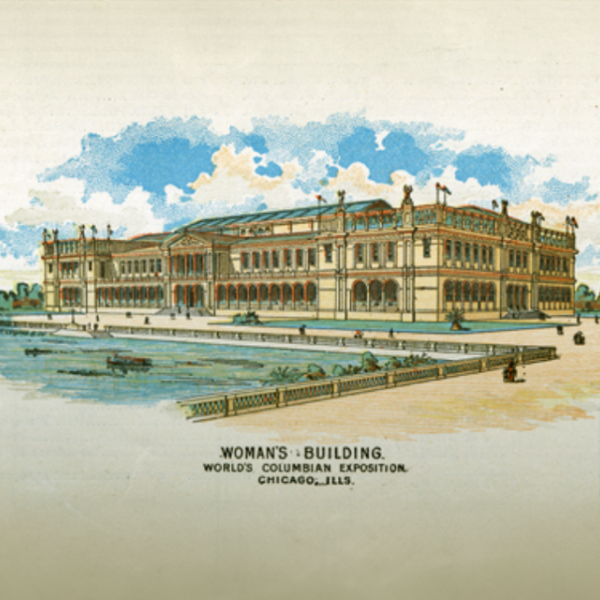In Runaway Wives, Urban Crimes, and Survival Strategies in Wartime Beijing, 1937–1952, Zhao Ma uses criminal case files to explore the political and social meanings of lower-class women’s survival strategies during the Japanese occupation, civil war and the Communist revolution. Building on that work, Ma has turned his attention to rumormongering and political propaganda in Beijing during the Resist America Aid Korea Movement — known in the United States as the Korean War — in the early 1950s. As a Faculty Fellow with the Center for the Humanities during fall 2014, Ma made progress on his next book project, “Seditious Talk in Revolutionary China during the Korean War Era: Beijing, 1950–53.” Here, he gives an early peek at his work.
Briefly, tell us what you hope to accomplish with your new book project.
I’m hoping to see how ordinary urban residents come to terms with a new political order and a new foreign war. Research in this area has been dominated by political and diplomatic history. I hope to bring a human voice to the larger narrative about the Korean War in China.
Who were these “rumormongers”?
They are from many different segments of society: factory workers, students and faculty, street peddlers, housewives in tenement neighborhoods, lower-level government employees. They had been under Communist rule for barely two years and now were being mobilized to confront the superpower United States on the Korean peninsula. When you have such a top-down, intense political campaign, you see different elements of society react differently. The interaction between rumormongers and government propagandists brings to light a heavy, penetrating political campaign trying to gear up the home base to support this war [Resist America Aid Korea Movement, aka, the Korean War]. The Chinese revolutionary state was trying to sell the war to the public, to infuse ideological clarity, political certainty and military assurance into what appeared, for many Chinese, a profoundly ambivalent war.
 What did they say?
What did they say?
They talk about the war from their own understanding and interest. They’re talking about the war’s progression, making predictions and trying to grapple with the ramifications of this war. Some views were explicitly subversive, unapologetically opposing government’s policies; most weren’t necessarily anti-government voices but discussed the war and wartime policies in ways that deviated from officially prescribed lines. For example, there were complaints about the government fighting a war on foreign land that drained China of crucial resources and slowed the recovery at home; worries that the regional conflict could possibly spill over into a “Third World War”; fears that a military setback could instantly and irrevocably throw the country back into chaos; speculations on government censoring of the news; reluctance to embrace North Korea as an ally; and palpable pro-America sentiments despite the consistent anti-American propaganda campaigns.
Why was this information collected? What are your sources?
The government realized that in order to have a successful military front, you must have a solidified home front. They sent out an army of propagandists into neighborhoods, working as mouthpieces. They were also there to watch and listen and report on their conversations. Back in their offices, they wrote detailed notes to the authorities about what was going on in their area — rumors, discussions, opinions. These reports bring to light a highly agitated but deeply divided public in the wake of China’s entrance into the Korean War. Although Chinese soldiers had already begun shedding blood in the fight against formidable enemies, the home front was not yet fully on board with government’s war effort. The hope with these reports [for party officials’ eyes only] was to help government agencies come up with effective propaganda and mobilization strategies.
What consequences did the subjects face?
This was an early stage of the Communist remaking of Beijing; the system of urban propaganda and political persecution was just taking shape. The reports do sometimes give names, especially if they were high profile — university faculty, middle-ranking officials, business leaders — but it’s hard to see the way it played out individually. On a broader scale, I want to highlight the range of unofficial views of official policy in a period previous scholarship has portrayed as unitary and subject to total state control. It is through the study of the rise and fall of rumors that I attempt to investigate the ways the Chinese revolutionary state’s institution and ideology was put in place and the revolutionary China was in the making.
 Tell us about researching these reports in the Beijing Municipal Archives.
Tell us about researching these reports in the Beijing Municipal Archives.
These government reports of rumors are now preserved at Beijing Municipal Archives, where I also did research for my first book. I’ve visited the archives almost every summer over the past 10 years. While there, I made a lot of friends with tremendously helpful Chinese archivists.
That said, as my research focus has moved from runaway wives in 1940s Beijing to rumormongers in revolutionary Beijing, I have found myself learning to cope with new user policies and viewing restrictions that I haven’t experienced before. Some archival holdings, such as the entire records of the anti-rightist campaign and the Bureau of Ethnic Minority Affairs, remained closed to researchers. Likewise, a lot of stories about the suppression of counter-revolutionaries remain off limits.
Moreover, the archives have discretion in approving printing requests. Some of my requests were denied on the ground that files contained “sensitive information” — which means that files may contain critical views toward the government or expose elements of regime’s persecution of its citizens.
My impression is that the whole history of 1950s China has become increasingly sensitive in Chinese academia. This period of time used to be celebrated as the golden age of the PRC [People’s Republic of China] — a time when the revolutionary state was able to mobilize popular support and rebuild China. But in recent years, with increased access to documents, we’ve begun to find the political witch-hunt impulses and the whole system of political manipulation taking shape in this early period.
Given this sensitivity and political baggage, do you ever feel the need to censor yourself in your research and writing?
Quite the opposite: When people in China become nervous or silent about my topic, or any components of it, that triggers my interest. That’s when I know it’s something I should pay attention to.
That being said, I am careful when organizing conferences and workshops, giving public talks and publishing my work in China, working around the government’s objections and censorships and pursuing my research agenda. This experience with the archives shows me that this is quite an intriguing research project. It’s a controversial war — 63 years ago as well as today.
Moreover, the project intersects with contemporary concerns. We are living in an age inundated with information and yet we are fearful of government surveillance. The massive official system of information collection, dissemination and surveillance established during the Korean War has become a durable feature of Chinese political culture. The practice of ordinary people engaging in seditious talk has continued as well. In the 21st century, bloggers and netizens wrestle with the state to define who claims the authority to produce information.




